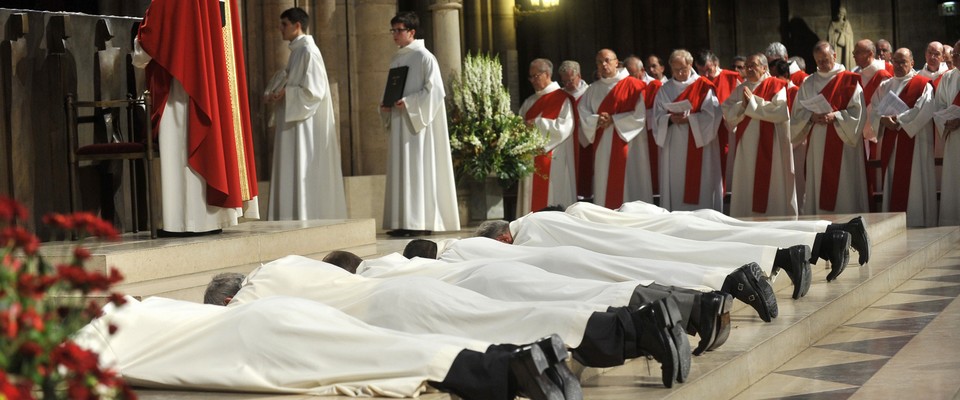The year 2019 of Pope Francis: certainty of faith and struggle against idolatry
Last updated: Thu 31 Mar 2022 PM
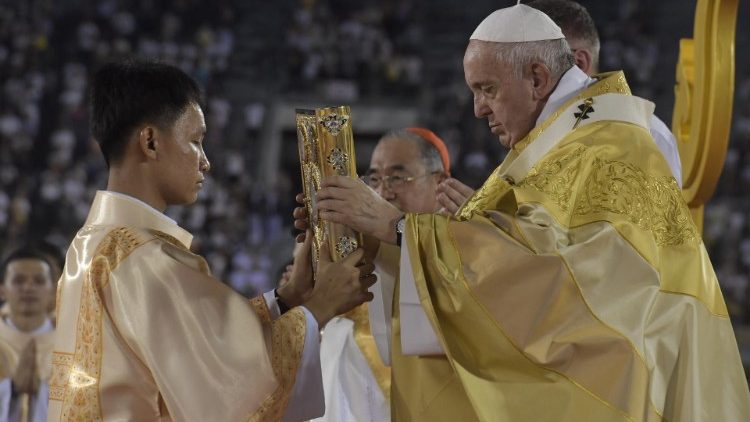
It was an intense year for Francis, with many journeys and personal encounters, with a single goal: to announce the good news of God's mercy.
Sergio Centofanti - Vatican City
Once again this year Pope Francis has given those who listen to him a simple catechesis, for all, on the love of God. The most important task is to proclaim the Gospel, he often repeats, and in 2019 he has done this through 41 general audiences (with the cycles on the Our Father and the Acts of the Apostles), 56 Angelus and Regina Coeli, more than 60 homilies in public celebrations, 44 homilies in St. Martha's, and about 260 public speeches, not to mention the many messages, letters, documents and interviews that have sometimes resulted in books.
The certainty of God's love
He reminds everyone that at the foundation of our lives there is a consoling certainty: God loves us and in Jesus he gave his life for us. This is the central message of his entire mission, as he hammered it out in 2013 in Evangelii gaudium, the "programmatic" text of his pontificate. He invites us to remember the "simple and robust faith" of mothers and grandmothers, which "gave them the strength and steadfastness to go forward and not let their arms fall off", "a homemade faith that goes unnoticed, but which gradually builds the kingdom of God". A faith that is not to be confused, for it is founded on the essentials of the Gospel.
Faith and idolatry
Francis exhorts us to adore the one true God, One and Triune, in a society that is becoming more and more pagan. "Idolatry," he says, "is not just going to a pagan temple and worshipping a statue. No, idolatry is an attitude of the heart, it is when you prefer something because it is more comfortable for you and you forget the Lord". Idols have changed their name, but they are more present than ever: the idol of money, success, career, self-realization, pleasure, and all those idols that promise happiness but do not give it, on the contrary, they enslave us, they steal our love. Idols promise life but take it away, while the true God does not ask for life, but gives it," warns the Pope.
The Pharisee in us doesn't allow himself to be corrected
The Pope's words are sometimes strong, as Jesus knew how to do. After all, he is his vicar. Like Him, he particularly admonishes the Pharisaic attitude of those who consider themselves righteous, more orthodox, better than others. It is "the religion of the ego", with its rites and prayers, of those who "confess to be Catholics, but have forgotten to be Christian and human", have forgotten to render "true worship to God, which always passes through love of neighbour". Francis proposes the path of self-accusation: in each one of us, he observes, the Pharisee always rises up, presumptuous, a champion to justify himself. But the way of faith is always to have the humility to allow oneself to be corrected.
Softness against attacks
Like the strong words of Jesus, those of the Pope also have a double effect: one comes out converted or even more hardened. Hence the internal resistance and the attacks. Francis is not afraid of a schism," he said on the flight back from Africa. "Today," he remarked, "we have many schools of rigidity in the Church, which are not schisms but pseudo-schisms, which will end badly," because behind this rigid attitude "there is no holiness of the Gospel.
The Pope invites us to respond to evil with good, to "be gentle with those who are tempted to make these attacks", because they are going through a problem and must therefore be accompanied "with gentleness". They fear that today's Church is no longer Catholic, they put into the Pontiff's mouth words that have never been said: but no dogma has changed, there is only a step forward in welcoming and showing mercy, and devotions have not been cancelled, there is only the invitation to live them with the heart. With the exhortation to walk in union with the people, so that the development of doctrine may always be united with true Tradition. In the present context, the real question is in fact: will Christians succeed in being merciful to one another?
Synod on Amazonia: Conversion to Jesus
Last October the Synod for the Amazon was held. The Pope repeated the word "conversion" several times, a dynamic that found its place in the Final Document as the main exhortation of the assembly. The Synod called for a fourfold conversion: synodal, because the Church must increasingly place herself in a common walk, not divided or alone; cultural, because it is necessary to know how to speak to different cultures; ecological, because the selfish exploitation of the environment leads to the destruction of peoples; pastoral, because the proclamation of the Gospel is urgent. At the basis of these four conversions is the only conversion to the living Gospel, which is Jesus. True conversion is to set oneself apart, says Francis, to decentralize oneself, to put Christ at the center and to let the Holy Spirit be the protagonist of our life.
Fighting against abuses, inside and outside the Church
The February meeting in the Vatican can be defined as historic: Church leaders from all continents faced the scourge of child abuse in the Church and did so before the whole world with an effort of courage and transparency that should inspire other institutions. In his speech at the end of the meeting, Francis recalled, citing data, that the majority of abuses are perpetrated by family members and educators, therefore in the domestic, school, sports and ecclesial spheres, not to mention the scourge of sex tourism and other violence.
But the fact that this is "a universal and transversal problem that unfortunately is found everywhere", he said, "does not diminish its monstrosity within the Church", where it becomes even more serious and scandalous, "because it goes against her moral authority and ethical credibility". With the Motu proprio Vos estis lux mundi, the Pope establishes new procedures for reporting abuse, harassment and violence, and for ensuring that Bishops and religious superiors are accountable for their actions.
An obligation is introduced for clerics and religious to report abuses. Each diocese must have a system for receiving reports that is easily accessible to the public. Francis also abolished pontifical secrecy for these cases and amended the rule concerning the crime of child pornography to include in the case of "delicta graviora" - the most serious crimes - the possession and distribution of pornographic images involving minors up to the age of 18.
Reform: more missionary structures
The work of the Council of Cardinals (C6) to reform the Roman Curia so that all the structures of the Church are more missionary continues. The examination of the draft of the new Apostolic Constitution, whose provisional title is "Praedicate Evangelium" to signify that the principal service to be provided by the Holy See is that of proclaiming the Gospel, is being completed. In the meantime, the Pope has reformed the role of the Dean of the College of Cardinals: he has accepted the resignation of Cardinal Sodano, in office since 2005, and with a Motu proprio he has established the principle of a five-year mandate for this office, which until then had been of indefinite duration.
May money be at the service of the Gospel and the poor
Reform in the financial area is also progressing, in terms of transparency and cost control. Pope Francis renews the Statute of the IOR: the figure of the External Auditor for auditing according to international standards is introduced on a permanent basis. The Catholic principles underlying the mission of the IOR are clarified, so that it is more faithful to its original mission. Jesuit Juan Antonio Guerrero Alves has been appointed Prefect of the Secretariat for Economic Affairs. The Pope authorizes an investigation by the Vatican judiciary of various persons in the service of the Holy See concerning certain financial operations. And on the subject of the Denarius of St. Peter, he said that it is good administration to make the money received profitable and not to put it in the drawer. But the investment must always be "moral", so that the money is at the service of evangelization and the poor.
Rediscovering the Word of God to know Jesus
With the Apostolic Letter Aperuit illis, dated 30 September, the Pope instituted the Sunday of the Word of God, a special day to exhort all the faithful to read and meditate on the Bible, because - as St. Jerome said - "ignorance of Scripture is ignorance of Christ". It is necessary to rediscover the fundamental importance of a life-changing Word. The solemn appointment is fixed each year on the third Sunday of Ordinary Time: in 2020, therefore, it will be January 26th.
The beautiful tradition of the crib must never be lost
On December 1, Francis signed the Apostolic Letter Admirabile signum in Greccio, in which he exhorted to rediscover and revitalize the beautiful tradition of the crib. To represent the event of the birth of Jesus, he wrote, is to announce the mystery of the Incarnation of the Son of God with simplicity and joy. It is an act of evangelization, beautiful to see "in workplaces, schools, hospitals, prisons, squares".
There are more persecuted Christians today than yesterday.
Francis never tires of denouncing anti-Christian persecution. Today, he repeats, there are more martyrs than in the early days of Christianity. In January, the Supreme Court of Pakistan definitively acquitted Asia Bibi of the unjust charge of blasphemy for which she had been sentenced to death. Asia Bibi, a Catholic woman and mother of five, had been in prison since 2009. She is leaving the country with her family. Both Benedict XVI and Pope Francis had followed the case with great discretion, for security reasons. One of the girls, Eisham, had met Francis last year when she brought him her mother's kiss. The Pope told her: "I think of your mother very often and I pray for her".
On 21 April, Easter Sunday, Easter Sunday is mournful for an attack by Islamic extremists against the Christian Churches of Sri Lanka which caused the death of more than 250 people at prayer. The Pope's appeal arrives on the same day. But Francis also denounced attacks against other religions, such as the attack on the mosques of Christchurch, New Zealand, on 15 March, which killed more than 50 people.
Defending the family and life, every life
The Pope, on 25 March in Loreto, recalled that, especially for today's world, "the family based on marriage between a man and a woman is of essential importance and mission". The Pope's gaze is 360 degrees: life, rights and dignity are always defended, from the unborn child to those suffering from hunger or violence, from the sick and elderly to migrants who risk dying in search of a better future. Justice is not selective, it is not for some categories of people and others are not, it is universal.
To young people: discovering God's love and going against the tide
This year the Pope published the Apostolic Exhortation Christus vivit, the fruit of the Synod on Youth celebrated in the Vatican in October 2018. It is the incipit: "Christ lives. He is our hope and the most beautiful youth of this world. (...) That is why the first words I want to address to every young Christian are He lives and wants you to live!" Francis proposes "paths of fraternity" to live the faith, avoiding "the risk of being closed in small groups". He invites young people to live a social commitment in contact with the poor and to be protagonists of the change towards a more just and fraternal civilization. Finally, he exhorted them to become "courageous missionaries", witnessing to the Gospel everywhere with their lives, even going against the tide, especially in the face of "ideological colonisation".
International journeys: peace for the world
In this year 2019, François made 7 international trips visiting 11 countries on 4 continents, a record year for his extra-Italian missions. He proclaimed the Gospel of joy in Panama for WYD; in the United Arab Emirates he signed the Document on Human Fraternity with the Grand Imam of al Azhar; in Morocco he recalled the importance of inter-religious dialogue; in Bulgaria, Northern Macedonia and Romania he spoke of Christian unity ; in Mozambique, Madagascar and Mauritius, he raised his voice strongly in defence of the poor and of Creation; in Thailand, he appealed for the promotion of women's and children's rights, and in Japan, a trip centred on peace, he reiterated that it is immoral not only to use but also to possess nuclear weapons.
Saints and Blessed: Martyrs, lay people and with the purple colour
Also this year there were many canonizations and beatifications. In an exceptional way, the Pope personally presided at the beatification Mass in Blaj for seven bishops of the Greek-Catholic Church of Romania, martyrs of the Communist regime; others, such as the Argentinean Bishop Enrique Angelelli and his companions, among them the French priest Gabriel Longueville, were victims of right-wing dictatorships. But there are also lay saints, such as the Swiss Marguerite Bays, who lived out their vocation in the family, amidst a thousand difficulties. And there are saintly cardinals, like John Henry Newman, an Anglican who converted to the Catholic faith.
Fifty years of a priesthood touched by God's mercy
In 2019, the Pope celebrated 50 years of priesthood. His vocation dates back to September 21, 1953, in memory of St. Matthew, the publican converted by Jesus: during a confession he had a profound experience of God's mercy. It was an immense joy that impelled him to make a decision for ever: to become a priest in order to give back to others the mercy he had received.
The priest, says Francis, lives among people with the merciful heart of Jesus. Today is the time of mercy. The Church has understood this more and more in recent decades in her historical journey: with John XXIII she takes an important step in this direction, pursued by all her successors, especially by John Paul II who instituted Divine Mercy Sunday, inspired by St. Faustina Kowalska.
Source: Vatican News

Somalia: Pope prays for victims of Mogadishu bombing
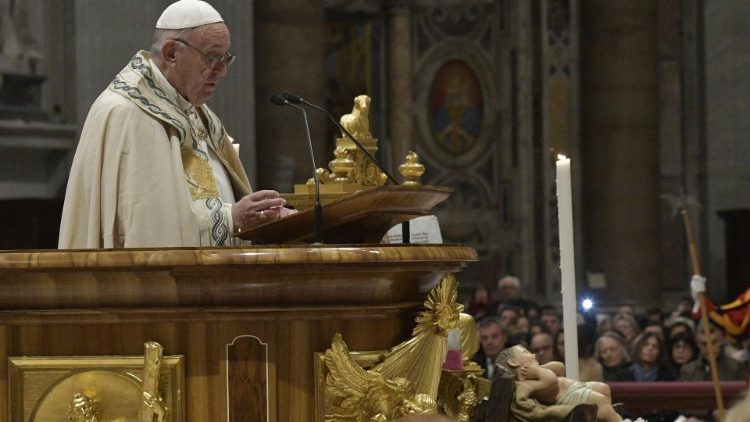
Te Deum: God changes the world through small gestures of love
Most viewed:
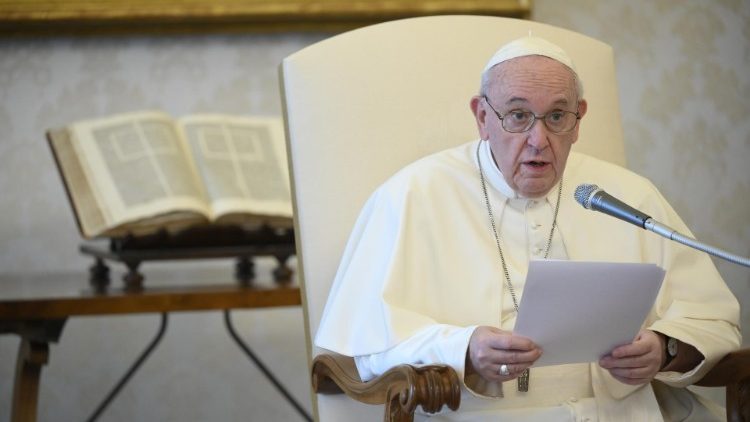
Pray is to make one's heart available for God's visit
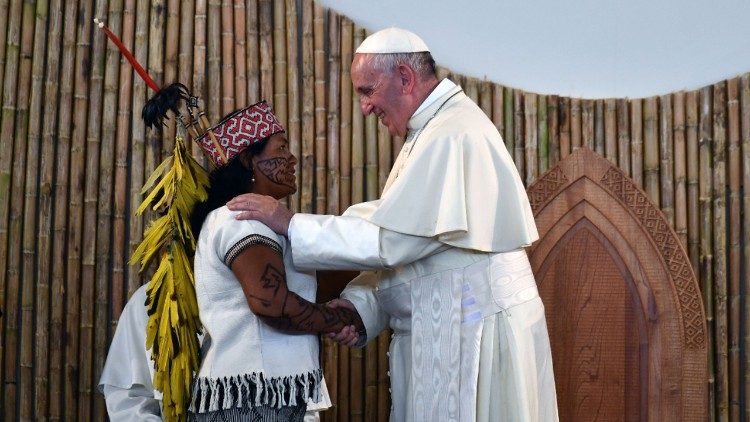
Querida Amazonia, the Pope's Exhortation for a Church with an Amazonian Face
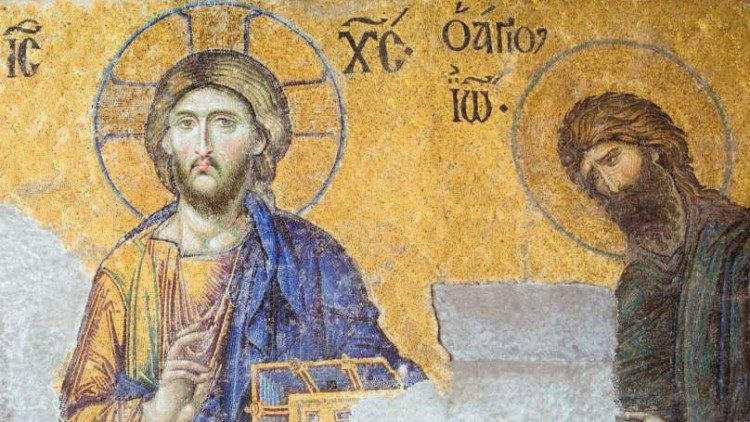
Spiritual Exercises: Listening to God is a Prophetic Experience
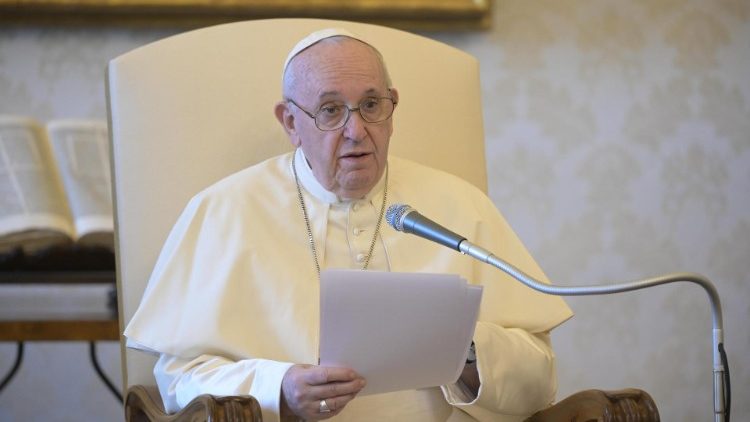
Pope at Audience: Recognize human dignity in every person
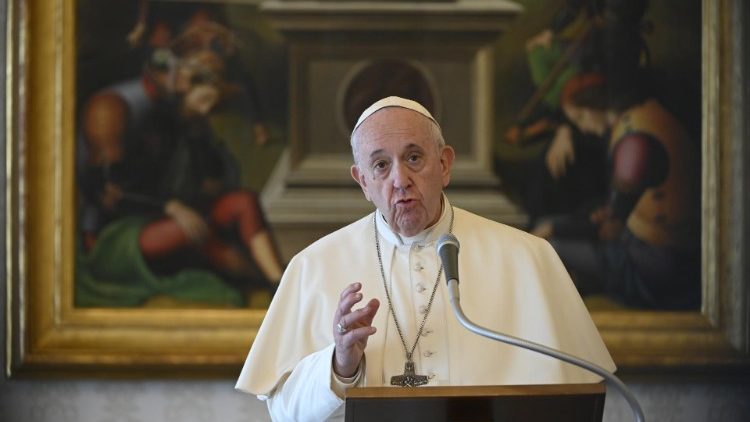
Pope proposes two prayer initiatives against coronavirus
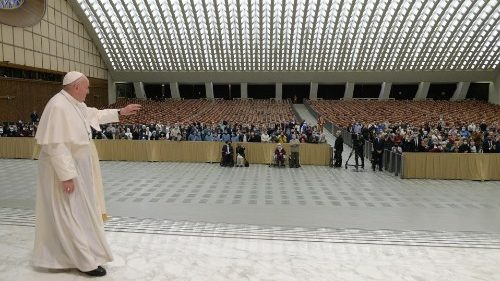
Pope Francis prays for victims of Cameroon school shooting
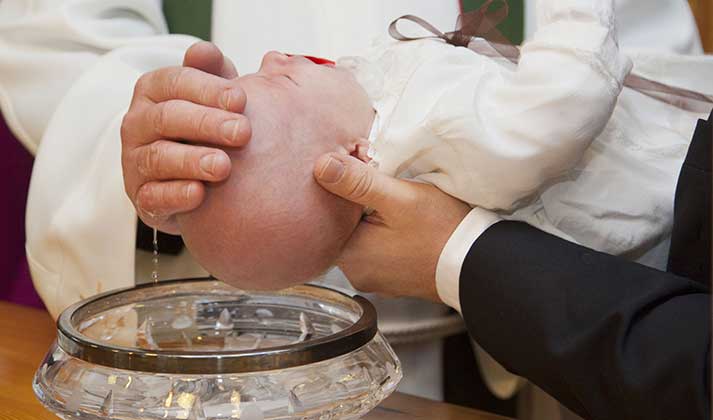
Baptism conferred with arbitrarily modified formulas is not valid
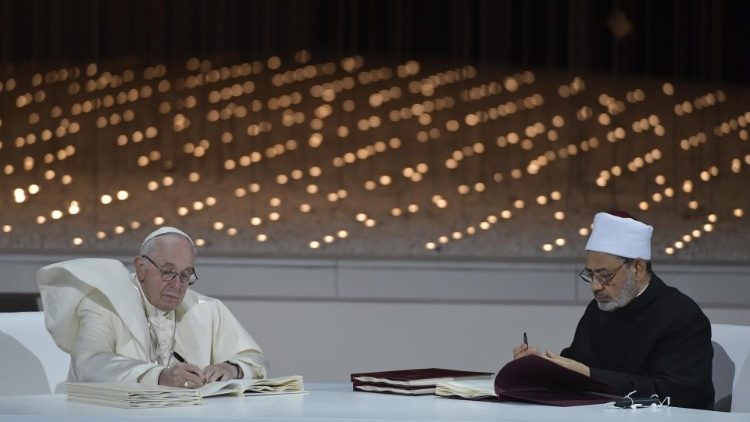
A year ago, the signing of the document on human brotherhood
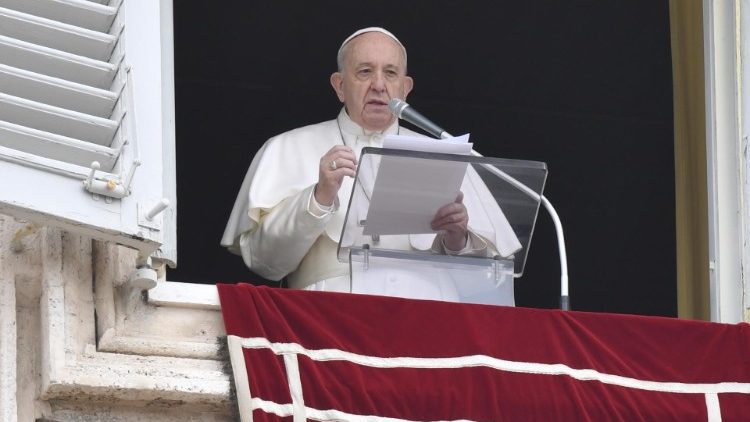
Never dialogue with temptation
